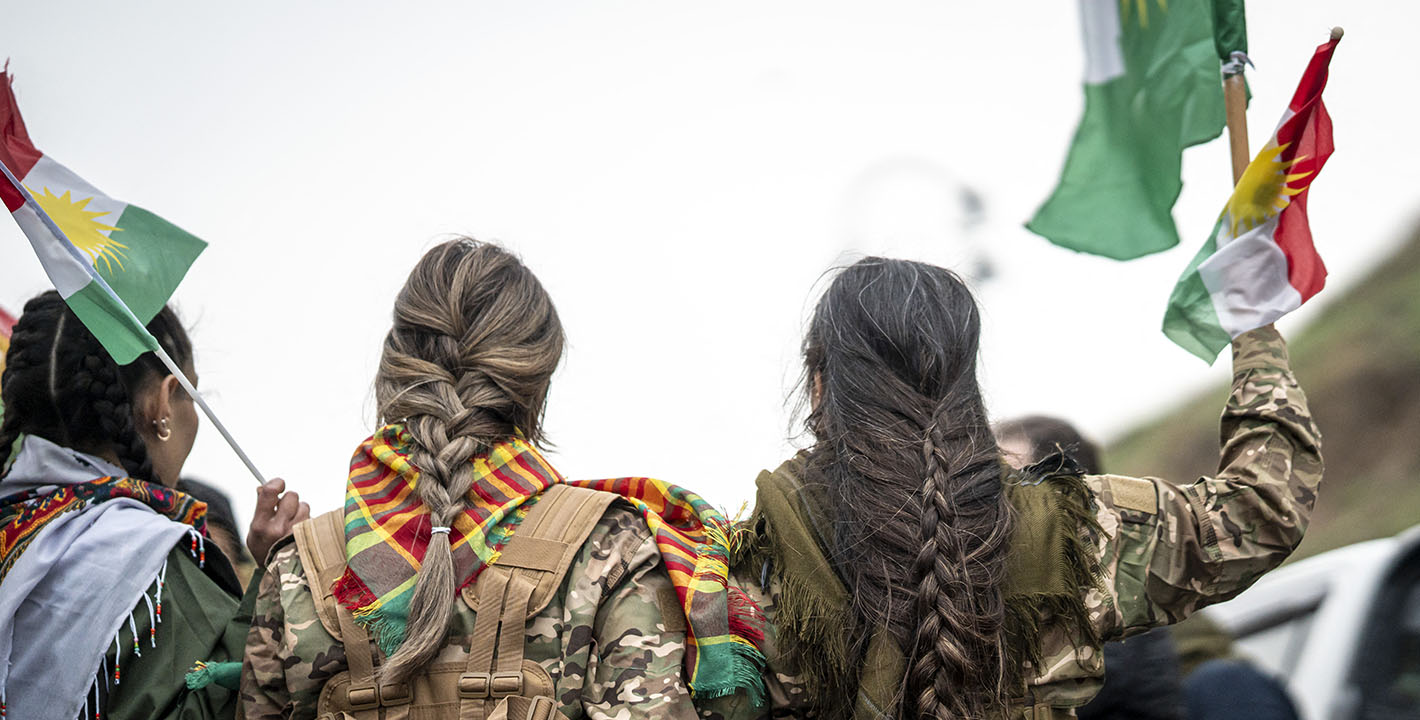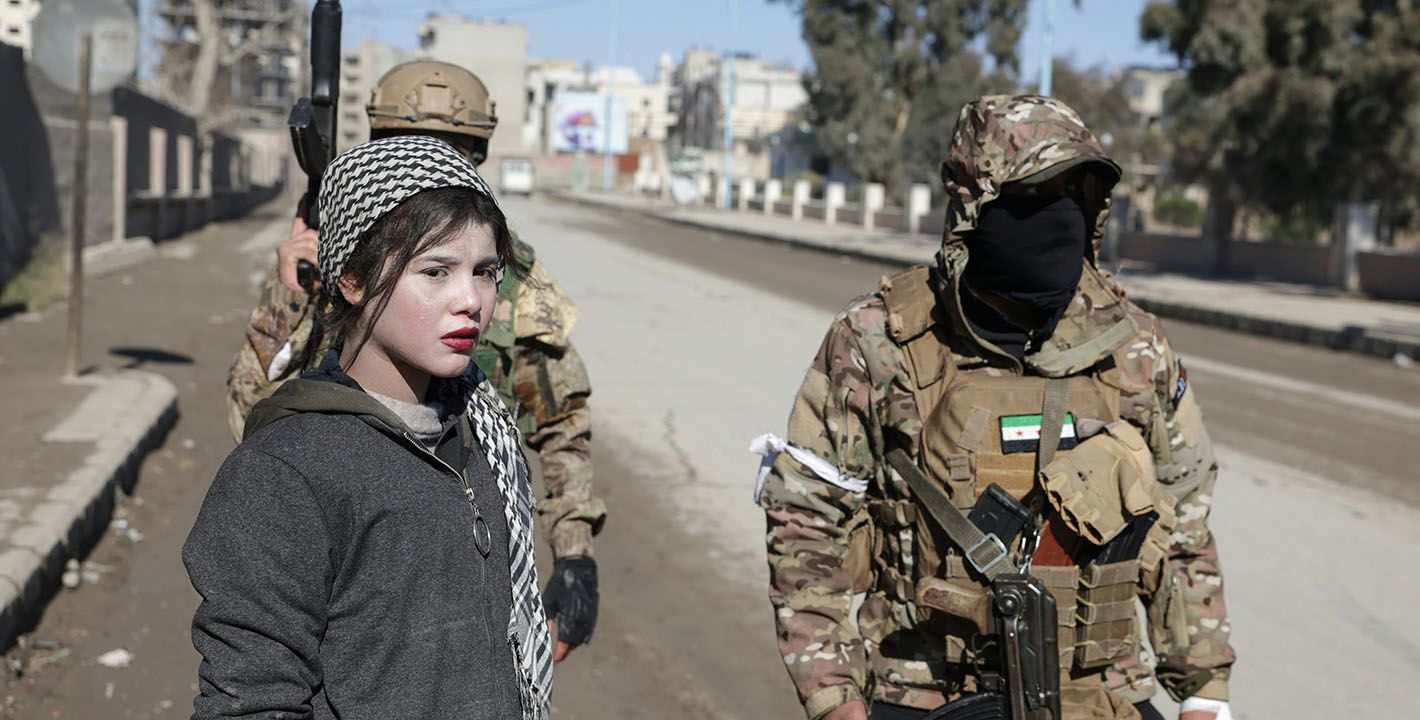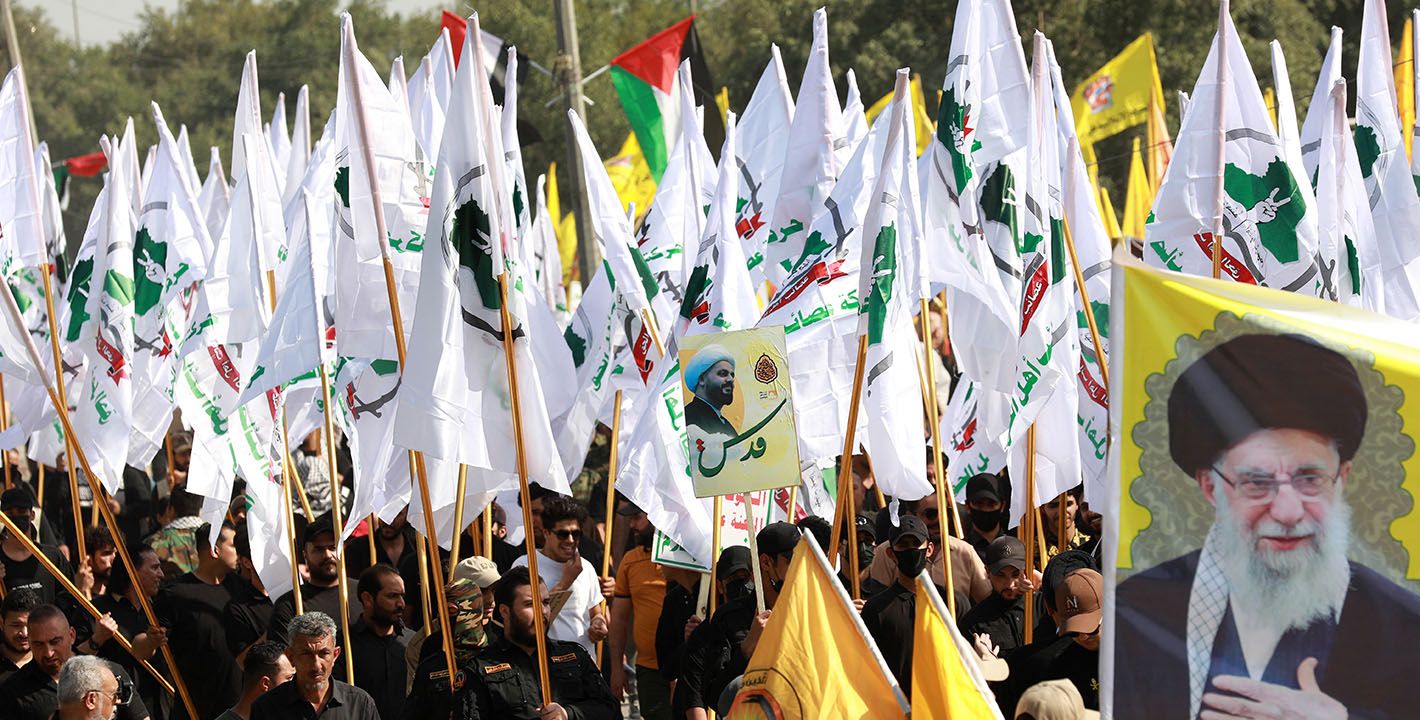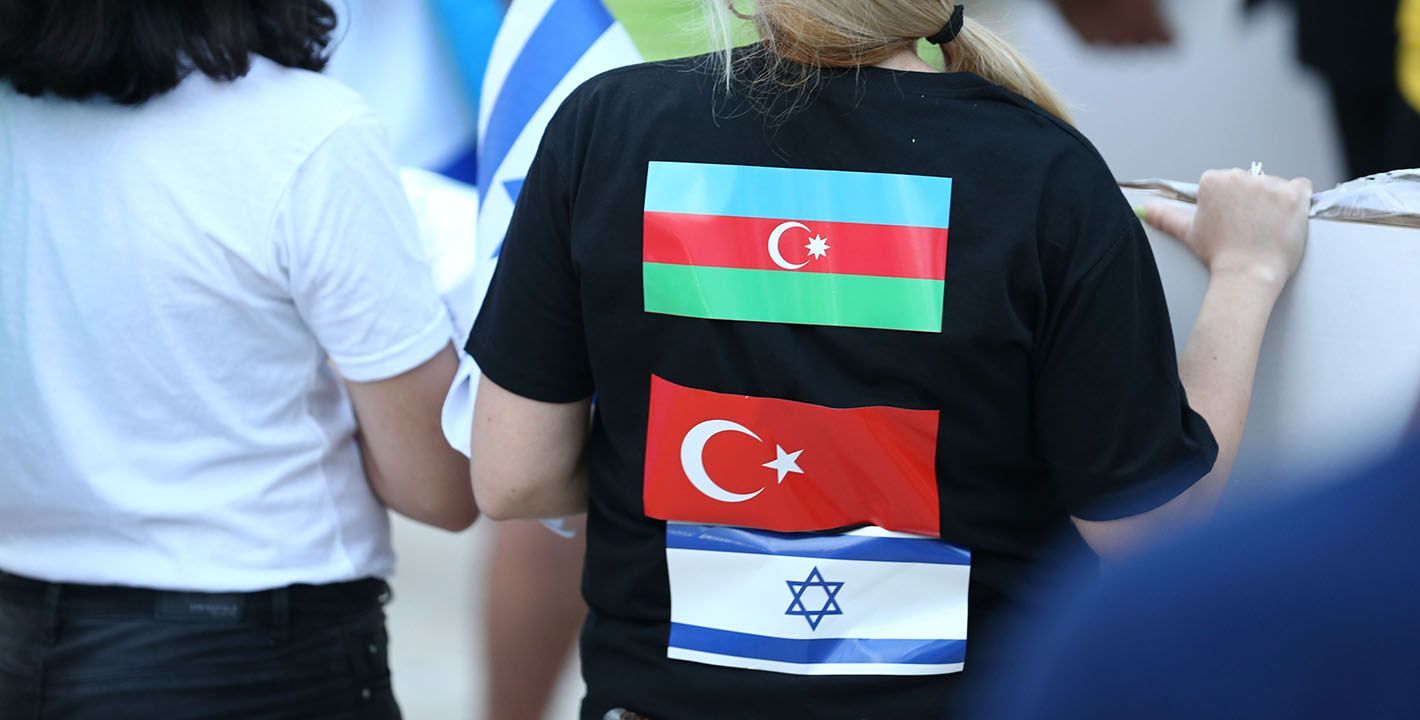Michael Young
{
"authors": [
"Michael Young"
],
"type": "commentary",
"blog": "Diwan",
"centerAffiliationAll": "dc",
"centers": [
"Carnegie Endowment for International Peace",
"Malcolm H. Kerr Carnegie Middle East Center"
],
"collections": [
"Inquiring Minds"
],
"englishNewsletterAll": "menaTransitions",
"nonEnglishNewsletterAll": "",
"primaryCenter": "Malcolm H. Kerr Carnegie Middle East Center",
"programAffiliation": "MEP",
"programs": [
"Middle East"
],
"projects": [
"The Return of Global Russia: A Reassessment of the Kremlin’s International Agenda"
],
"regions": [
"Levant",
"Türkiye",
"Syria",
"Middle East",
"Russia",
"Caucasus"
],
"topics": [
"Political Reform"
]
}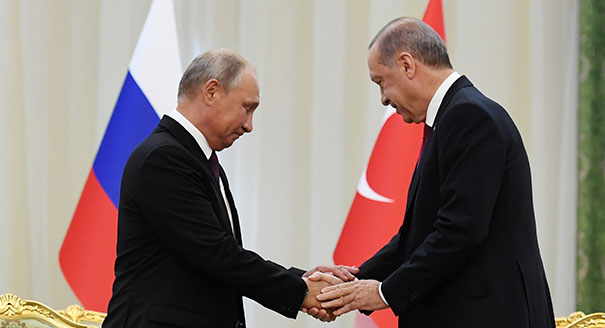
Source: Getty
What Are the Long-term Implications for Syria of the Russian-Turkish Alignment in the Country?
A regular survey of experts on matters relating to Middle Eastern and North African politics and security.
Dmitri Trenin | Director of the Carnegie Moscow Center
For Moscow, the agreement with Turkey over Idlib was another major test of its relations with Ankara. Russian President Vladimir Putin called off the offensive in the governorate, which is not only a thorn in the side of the Syrian regime, but also a source of danger to Russian forces in neighboring Latakia governorate. Clearly Putin did not want either a humanitarian catastrophe in Idlib, which would have been blamed on Russia, nor a break with Turkish President Recep Tayyip Erdoğan, a valuable ally in the region.
However, Putin’s decision is not so much a concession to his Turkish ally as an opportunity to allow Erdoğan to sort things out in Idlib, namely to discipline Syrian opposition forces supported by Ankara and get rid of Hay’at Tahrir al-Sham—whose largest group is the Al-Qa‘eda affiliate in Syria, Jabhat Fatah al-Sham, formerly Jabhat al-Nusra—and other extremists. Russia will hold back Damascus from attacking and manage Iran, while Turkey must do some heavy lifting, and do so within a few weeks. If Erdoğan fails to deliver, next time he will have to listen to Putin.
Sinan Ülgen | Visiting scholar at Carnegie Europe in Brussels
In general, it is positive that there is an alignment between Turkey and Russia over Syria. The Russians have gained considerable leverage over Damascus while the Turks are influential in steering at least part of the opposition. So the two countries’ acting together certainly increases the prospects for a lasting political settlement in Syria.
The question, however, is whether this alignment can actually be sustained going forward. Even assuming that the Idlib question can be resolved, it is unclear if Ankara and Moscow can continue to operate on the same wavelength. Of vital importance is a very possible divergence of interests over Syria’s future. Russia will push for the regime to extend its control over all Syrian territory. But Ankara will want to ensure its core security concerns are addressed, which also relates to the eventual status of the Kurdish region.
Ziad Majed | Associate professor at the American University of Paris
There are many obstacles to the implementation of the Russian-Turkish agreement over Idlib, the most important one being how to deal with Hay’at Tahrir al-Sham. Nevertheless, the agreement reflects new dynamics in relations between Russia, Turkey, and Iran, based on three considerations.
The first is Turkey’s determination to remain a decisive actor in northern Syria and to resist any attempt that would allow Iran and the Syrian regime to be present on its southern border. This has led to the deployment of Turkish troops and heavy weaponry in the region, and to maneuvers showing that the borders will not be closed to armed Syrian opposition groups during any operation, the way they were closed in Der‘a in the south.
The second is Russia’s hesitation to allow a large military campaign in Idlib that would require the involvement of Iranian forces and Shi‘a militias. Moscow is trying to contain Iran’s role in Syria in order to better negotiate a deal with the Americans, who insist on an Iranian withdrawal from the country.
The third is the European fear of a new refugee crisis reaching its territories (through Turkey) if a large-scale attack is launched against Idlib. Russia is hoping to convince the Europeans to finance Syria’s reconstruction. A new refugee crisis provoked by a military offensive would definitely hamper such efforts.
These three considerations, among others, allowed for the conclusion of the agreement. However, it is difficult to assume that it is a sustainable one, or that it might extend to other political questions. Russia does not want to lose Turkey, and Ankara wants to remain within any framework or understanding giving it a major role in northern Syria and a capacity to weaken Kurdish militias there. But Russian and Turkish interests diverge when it comes to a final solution. And they both are still waiting to see what the United States will decide with regard to its forces in eastern Syria and its policies toward Iran’s role in the region in general.
Sam Heller | Senior analyst for non-state armed groups at the International Crisis Group
The Russian-Turkish alignment in Syria does not necessarily come at the expense of the Syrian government. Russia has invested substantially in restoring its Syrian ally’s potency and writ over much of Syria. To the extent that Russia has found common ground with Turkey in Syria, it has been on points that advance Russian aims—in particular undermining a U.S.-sponsored, Kurdish-led project in Syria’s east that both Turkey and Russia view as a threat.
The Russian-Turkish agreement over Idlib is not, on its face, opposed to the Syrian government in Damascus. By forestalling a military offensive, it prevents a humanitarian disaster. This clearly is welcome in Moscow and satisfies Turkish interests and security needs. But it also seems to burden Turkey with reducing the most extreme rebel elements in Idlib and, if that somehow succeeds, securing the major highways that crisscross Idlib and matter most to Damascus—and all by a set of hard, imminent deadlines.
Russia has invited a larger, more hands-on role for Turkey in Idlib, but one that may serve Syrian President Bashar al-Assad’s ends. This could be another instance of Russia balancing and accommodating the interests of Syria’s neighbors while incrementally advancing its overall campaign in support of Damascus.
About the Author

Editor, Diwan, Senior Editor, Malcolm H. Kerr Carnegie Middle East Center
Michael Young is the editor of Diwan and a senior editor at the Malcolm H. Kerr Carnegie Middle East Center.
- Axis of Resistance or Suicide?Commentary
- Iran and the New Geopolitical MomentCommentary
Michael Young
Recent Work
Carnegie does not take institutional positions on public policy issues; the views represented herein are those of the author(s) and do not necessarily reflect the views of Carnegie, its staff, or its trustees.
More Work from Diwan
- Axis of Resistance or Suicide?Commentary
As Iran defends its interests in the region and its regime’s survival, it may push Hezbollah into the abyss.
Michael Young
- Kurdish Nationalism Rears its Head in SyriaCommentary
A recent offensive by Damascus and the Kurds’ abandonment by Arab allies have left a sense of betrayal.
Wladimir van Wilgenburg
- All Eyes on Southern SyriaCommentary
The government’s gains in the northwest will have an echo nationally, but will they alter Israeli calculations?
Armenak Tokmajyan
- The Hezbollah Disarmament Debate Hits IraqCommentary
Beirut and Baghdad are both watching how the other seeks to give the state a monopoly of weapons.
Hasan Hamra
- Iran’s Woes Aren’t Only DomesticCommentary
The country’s leadership is increasingly uneasy about multiple challenges from the Levant to the South Caucasus.
Armenak Tokmajyan


